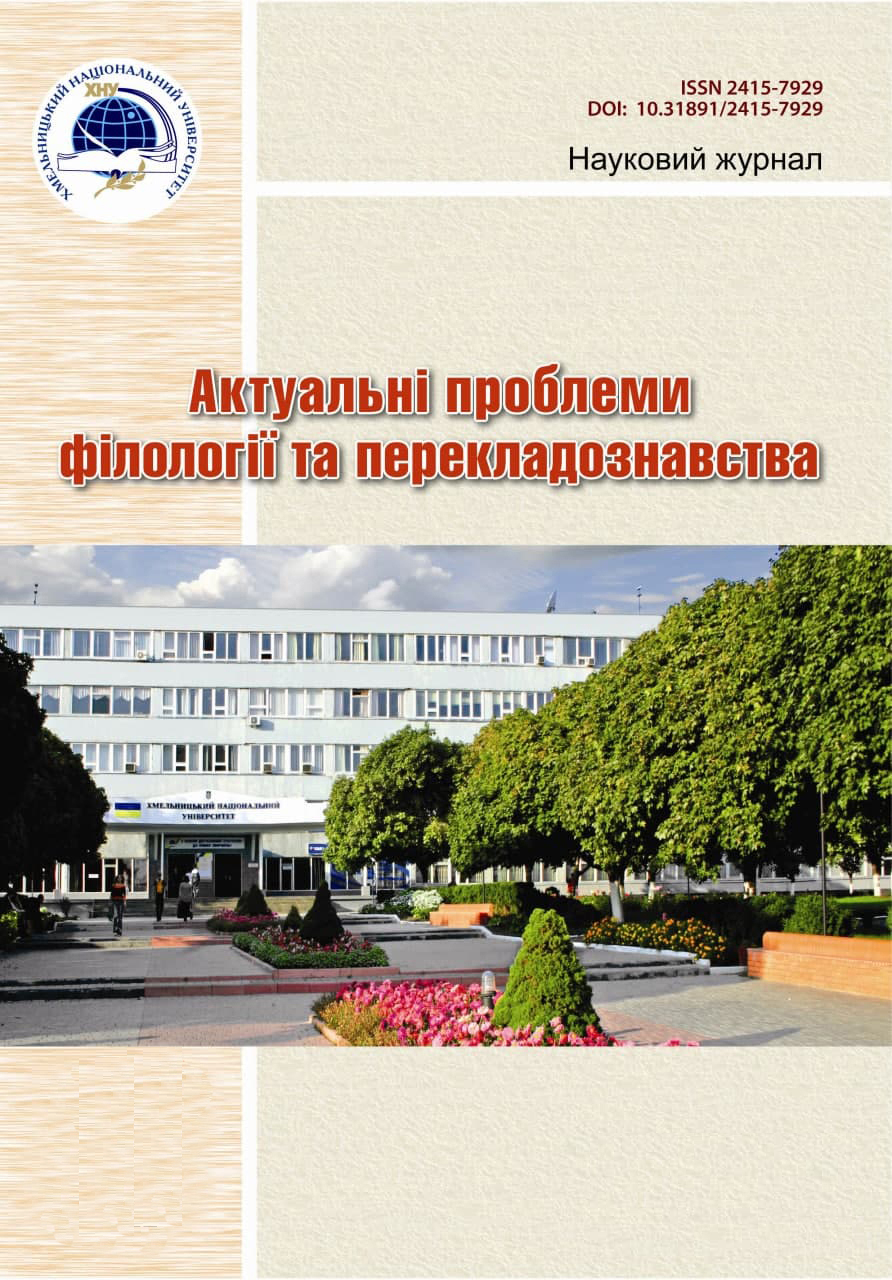THE CONCEPT ECOCIDE: THE LEXICAL AND STYLISTIC MEANS OF ITS VERBALIZATION IN THE ORIGINAL AND TRANSLATION
DOI:
https://doi.org/10.31891/2415-7929-2024-30-8Keywords:
concept, verbalization, conceptual analysis, lexical unit, metaphor, conceptual metaphor, core, conceptual model of translationAbstract
The article considers the lexical units and stylistic devices which are used for verbalization of the concept ECOCIDE. The research is based on the articles in the British, American and Ukrainian mass media of the last two years. The conceptual models of translation of the lexical and stylistic devices are investigated. The algorithm of investigation includes the following stages. 1. determining the concept of the article; 2. defining the lexical means of its verbalization, in particular the core units; 3. formulating the conceptual metaphor. In the process of translation it is necessary to retain the conceptual idea. While investigating the concept ECOCIDE, three main groups of lexical units have been singled out which belong to the semantic fields NATURE, WAR, CRIME. These semantic fields are interconnected because the journalists describe ecocide as crimes against nature during the war. The study shows that the lexical units belonging to the semantic group CRIME (ECOLOGICAL CRIME) are emotionally colored and express negative evaluative connotations. The most widely used words of these three groups verbalizing the concept are trees, plants, animals, ecocide, disaster, death, mine, destroy, kill. The concept ECOCIDE is also verbalized with the help of anthropomorphic metaphors which ascribe the properties of human beings to the objects of nature. Such stylistic devices reflect the emotional attitude of the journalists to the death of nature, their bitterness and anger caused by the russian agression and destruction. Other aspects of the concept are described in the articles such as the tragic consequences of the destruction of the Kakhovka hydropower plant, the use of mines, the occupation of biospheric reserves and parks. One journalist compares the occupation of the Zaporizhya atomic power plant with the menace of Armageddon, using a mythological allusion. The major conceptual model of our translation was retaining the conceptual idea of the source text and using the same or somewhat different linguistic expressions which help to render the emotional, image-making and even passionate style of the journalists, their sympathy to our country, our people, our nature.
Downloads
Published
Issue
Section
License
Copyright (c) 2024 Олександр ЄМЕЦЬ (Автор)

This work is licensed under a Creative Commons Attribution-NonCommercial-NoDerivatives 4.0 International License.

